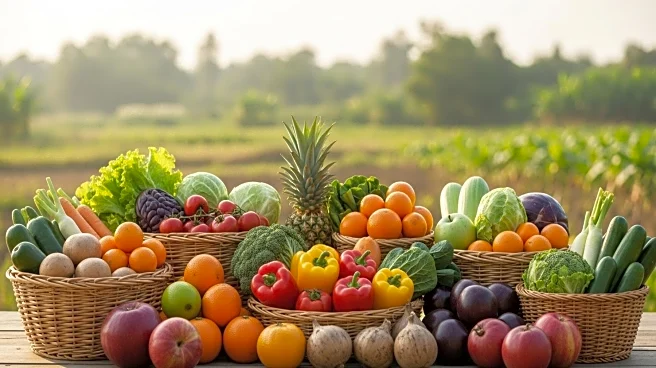What's Happening?
Ghana is facing significant food inflation, with rates of insufficient food consumption rising by 5.77% in July 2024. The government is responding to these challenges by proposing a year-round agricultural strategy that leverages regional strengths. This approach aims to stabilize food supplies, reduce price volatility, and enhance resilience against economic shocks. The strategy includes mapping regional strengths, coordinating planting and harvesting schedules, implementing climate-resilient practices, and utilizing technology and data to guide farming decisions.
Why It's Important?
The proposed strategy is crucial for addressing Ghana's recurring food crises and high inflation rates. By optimizing regional agricultural potential, the country can lower food inflation, boost exports, reduce reliance on imports, and create jobs. This structural change could significantly enhance food security and economic resilience, providing a sustainable solution to the challenges posed by external shocks such as rising fuel prices and severe droughts.
What's Next?
The government is expected to implement policies and investments in irrigation and research to support the year-round farming system. Collaboration among government, agricultural experts, and farmers will be essential to realize this vision. The success of this strategy could serve as a model for other countries facing similar challenges.










